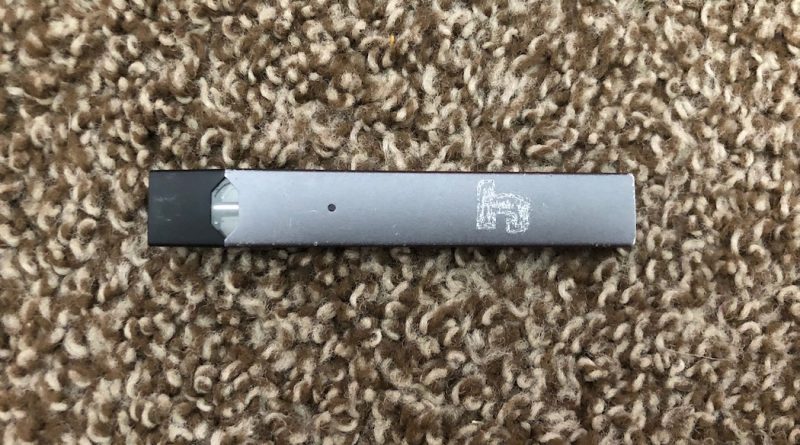Government Limits Sale Of Juuls
Rose Roche
Contributing Writer
Electronic cigarettes (e-cigarettes) have taken the country by storm. Perceived as an affordable, sleek and cool way to inhale nicotine, they have many running to their local tobacco shops to purchase this latest trend.
Juuls, an e-cigarette brand, were originally released as a way to cut back on smoking. Their purpose was to curve cigarette addiction.
However, juuls are associated with flavored “pods” of nicotine such as mint, mango, creme brulee, fruit melody and tobacco. Juuls also come in sleek models that are available in different colors such as black, silver and gold.
Although this product was meant to help people curve their cigarette addiction, recently the percentage of middle school students smoking e-cigarettes has increased. This has many worried about youth inhaling the dangerous vape and becoming more prone to an early nicotine addiction.
The Food and Drug Administration (FDA) has proposed that the sale of flavored pods in local stores be made illegal. Dr. Gottlieb, the commissioner of the FDA, said this will help reel back the use of e-cigarettes among youth, but it also will affect adults trying to quit smoking.
“Dr. Gottlieb has called the attacks on flavored products an ‘unfortunate trade-off’ because they could restrict access to alternatives for adults trying to quit smoking,” according to the New York Times. “But, he also said parents should consider their children’s use of e-cigarettes a serious health threat.”
In reaction to this pressure, Juul announced in November it would stop selling many of its flavored pods in retail stores and discontinue the company’s social media promotions.
Additionally, Gottlieb gave a 60-day period to major e-cigarette companies in September to show they are not marketing toward teenagers in order to sell their products. He also has proposed raising the age requirement to purchase these products from 18 to 21-years-old.
To address this issue, the agency is planning on requiring age-verification measures for online purchases.
Juul came forward with marketing documents, showing its compliance with the new rules, but the FDA was not convinced. Regulators visited the company’s San Francisco headquarters in September and seized more documents.
Although there is a health risk when smoking any nicotine product, the rate of U.S. adults who smoke tobacco cigarettes has declined. The Centers for Disease Control and Prevention released a report showing 14 percent of adults are cigarette smokers, which is a 67 percent decrease since 1965.
Photo courtesy of Peter Kolb.

